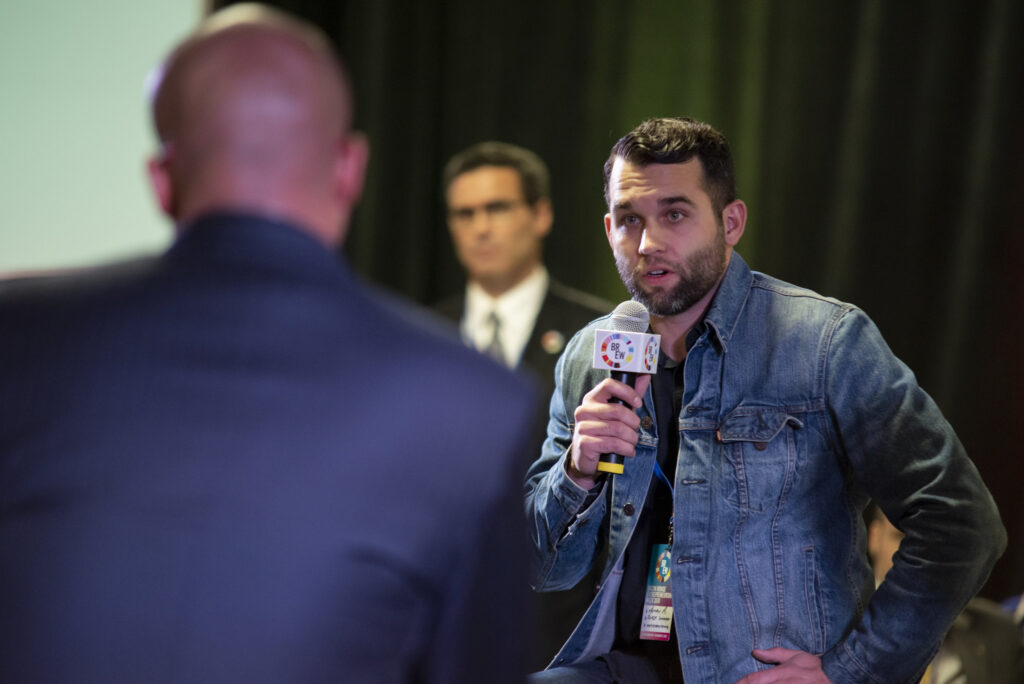From cash flow to recruiting and retaining talent to managing evolving customer needs, scaling up a company represents a level of complexity that is well beyond the initial startup phase.
During a recent Baton Rouge Entrepreneurship Week panel discussion, a group of Louisiana entrepreneurs shared lessons they learned along the way as they successfully scaled their businesses. Here’s a look at a few of their insights.
Empowering People
Several panel members said that letting go and empowering others to lead was among their biggest challenges as they scaled their companies.
“Instead of being a leader and creating followers, the goal is to create a leader that creates more leaders,” says Erik Frank, president of Your Nutrition Delivered. Frank says that as it has grown, his company has placed an emphasis on passing on both the knowledge of how to be a leader within the organization and of what effective leadership looks like.
Lowry Curley, CEO of AxoSim, a New Orleans-based biotech startup, said the company’s first four employees represented an efficient and effective team that was frequently in the same room together, which made keeping up with day-to-day operations easy. “Once we grew to five people we weren’t all in the same room, so that got disconnected,” he said. “I learned that you need operational processes in place to check in on that.”
Peru Sharma, founder of meal-kit delivery business Indie Plate, which was acquired by Waitr, says that in retrospect he should have given others within the company more autonomy to make key decisions — and to live with the success or failure of those choices. “We had the people,” Sharma says. “The problem was I failed to empower the people to make decisions when the time was right.”
Other Challenges
Will Scott, owner of Search Influence, a New Orleans-based digital marketing agency, says managing cash and planning for contingencies has been among the most profound challenges he has encountered during the scaling phase. He says that just as his company was about to reach its 100th employee, its largest customer decided to take its services in-house. “That represented about half of our revenue,” he says.
Scott says the company was able to survive that harrowing experience because it had saved a significant chunk of cash to push through leaner times.
Mary Ellen Slayter, founder and CEO of content marketing firm Rep Cap, says choosing what types of opportunities to pursue represents a significant challenge for her as a CEO, particularly now that her company’s core business is stable and thriving. “Where do I put my energy, my time, our attention and our cash in 2019?” she says. “Is it in these side projects I have rolling or is it in the core business?”
Craig Gehring, founder and CEO of education company MasteryPrep, says that question about focus becomes even more important when a company is growing rapidly. “As an entrepreneur you can get your startup to do anything,” he says. But it’s important to focus on “what is right for the team, what is right for our customers, what is right for shareholders — and you need time to sort through that.”
Failing Fast
Gehring says that several years ago, when MasteryPrep’s revenue grew 10-fold over a single year, he went on a hiring spree, which would later prompt a round of costly and uncomfortable layoffs. He says the mistake was compounded by his initial unwillingness to admit to himself that he had made an error — a level of denial that he suggests can be common among entrepreneurs who are scaling. “My biggest regret after was that I didn’t take the fail earlier,” he says.
Frank says a pivotal moment for him came early in his business journey when he encountered a trainer at a New Orleans startup accelerator who told him his business model was broken and wouldn’t scale. Frank, who had a profitable business and had just come off winning a major startup award, initially rebuffed the advice — but eventually realized the trainer was correct.
“I completely had to pivot and totally change what we were doing,” he says. “If it wasn’t for that accelerator, if it wasn’t for that trainer, I would have failed for sure.”
To avoid making fatal mistakes in the scaling phase, D’Marcus Glasper, chief operating officer for social shopping app SellSwipe, says the Baton Rouge-based startup is taking its time and ensuring it can execute everything it needs to before expanding. “We’re making sure we don’t jump the gun and get ahead of ourselves,” he says.




